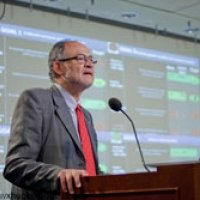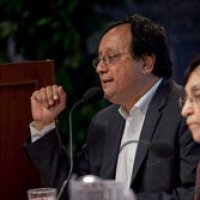Guatemala: A Post-Elections Assessment and Future Challenges
With none of the candidates in last Sunday’s Guatemalan presidential elections receiving the required 50 percent of the vote, the top two candidates are headed for a runoff election scheduled for November 6. Former general Otto Pérez Molina of the right-of-center Patriot Party, who had been favored to come out ahead, secured just 36 percent of the votes, while business man Manuel Baldizón came in second with 23 percent. A distinguished panel of experts will join us to discuss electoral results as well as the country’s major security, political, and economic challenges.
This is a time of heightened international attention to Guatemala and to the Central American region as a whole. And we all know the reasons…the rising concern in and outside the region over the growing activities of organized crime, coupled with already high levels of crime and violence.
Both presidential candidates, Otto Pérez Molina and Manuel Baldizón, have promised a mano dura in confronting the security situation. And both have promised new social programs to address longstanding issues of poverty and inequality.
But what more can learn about these two men? What are their visions for bringing greater security to Guatemala and addressing the country’s gaping social deficits? What do these elections tell us about the advances in and challenges to building democracy in the fifteen or so years since the end of civil war?
Speakers




Hosted By

Latin America Program
The Wilson Center’s prestigious Latin America Program provides non-partisan expertise to a broad community of decision makers in the United States and Latin America on critical policy issues facing the Hemisphere. The Program provides insightful and actionable research for policymakers, private sector leaders, journalists, and public intellectuals in the United States and Latin America. To bridge the gap between scholarship and policy action, it fosters new inquiry, sponsors high-level public and private meetings among multiple stakeholders, and explores policy options to improve outcomes for citizens throughout the Americas. Drawing on the Wilson Center’s strength as the nation’s key non-partisan policy forum, the Program serves as a trusted source of analysis and a vital point of contact between the worlds of scholarship and action. Read more
